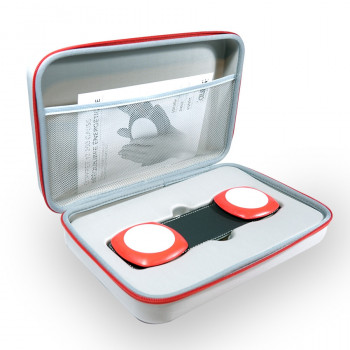
Winter is upon us, with its short days, lack of sunshine and cool temperatures. These seasonal changes can have a significant impact on our health, not least by reducing our vitamin D levels. Known as the “sunshine vitamin”, this precious substance is essential for many of our body's functions.
The essential role of vitamin D in the body
Vitamin D is more than just a vitamin; it acts as a key hormone, regulating many vital processes. Produced naturally by our skin under the effect of ultraviolet B (UVB) rays, it plays a fundamental role in our health.
The benefits of vitamin D:
- Healthy bones and teeth: Vitamin D helps absorb calcium and phosphorus, essential for strong bones and teeth.
- Boosting the immune system: It helps protect the body against infections, particularly respiratory diseases, which are more common in winter.
- Preserves muscular health: It promotes good muscular strength, essential for injury prevention.
- Boosts morale: Helps regulate mood and can reduce symptoms of seasonal depression.
- Reduced risk of chronic diseases: Several studies suggest that a good level of vitamin D can help prevent certain diseases, such as diabetes and cardiovascular disorders.
Why is it so important in winter?
Winter poses unique challenges to our vitamin D production:
- 1. Less sunlight: due to the Earth's tilt, the UVB rays needed for vitamin D synthesis reach our skin less effectively.
- 2. Indoor lifestyle: cold weather forces us to stay indoors more, further limiting our exposure to natural light.
- 3. Covering clothing: even when we're out and about, our winter coats and accessories reduce the surface area of exposed skin.
- As a result, many people find themselves vitamin D deficient during this period.
Symptoms of vitamin D deficiency
It's important to recognize the signs of vitamin D deficiency so you can act quickly. Symptoms include:
- Persistent fatigue
- Muscle or joint pain
- Increased bone fragility
- Mood swings or depression
- A general drop in immunity, leading to frequent infections.
If you experience any of these signs, it may be worthwhile consulting a healthcare professional to assess your vitamin D levels.
How can I maintain a good vitamin D intake over winter?
1. Optimize your sun exposure
Even in winter, it's beneficial to take advantage of the rare rays of sunshine. Try to go out every day, face and hands uncovered, for about 20 minutes. A walk in the middle of the day is ideal, when the sun is at its zenith.
2. Eat a diet rich in vitamin D
Although skin production remains the main source, certain foods can supplement your intake:
- Oily fish: Salmon, mackerel, sardines and herring are rich in vitamin D.
- Eggs: Egg yolks contain small quantities of this vitamin.
- Fortified dairy and plant products: Vitamin D-enriched milks, yogurts and plant-based drinks are good choices.
- Mushrooms: Some, such as shiitake mushrooms, contain vitamin D, especially if exposed to light.
3. Think supplements
For people who have difficulty maintaining an adequate intake through diet and sun exposure, dietary supplements are an effective solution. They are available in drop, tablet or capsule form. Consult a doctor to find out if this option is right for you.
4. Pay attention to your overall health
A good night's sleep, regular exercise and a balanced diet can also help your body get through the winter.
A simple gesture for radiant health
Vitamin D is much more than a nutrient: it's a pillar of our health. In winter, when its natural supply diminishes, it's crucial to take the necessary steps to maintain a healthy balance. By adopting simple gestures such as getting outside regularly, eating vitamin D-rich foods, and considering supplementation if necessary, you can get through the cold season in top form.



